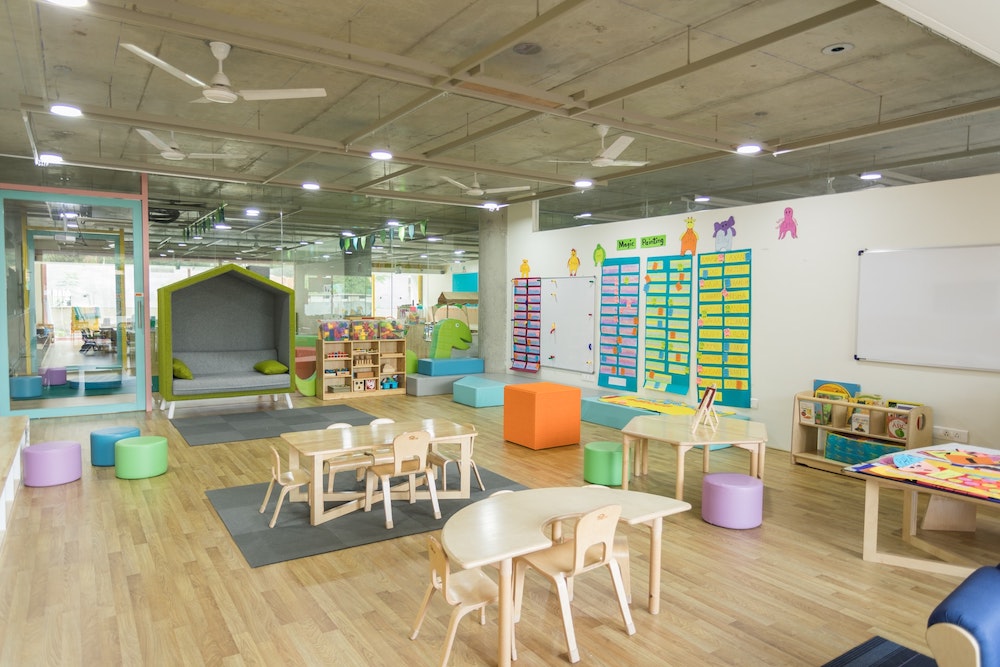Childcare is a major concern for people all across the country. This shouldn’t come as a surprise. A whole bunch of highly important components of our lives converges when we think about child care. Foremost, there are our children—their needs and well-being. Then there are our finances which, especially lately, have been under a lot of pressure (hello mad inflation). Some options just aren’t feasible without making major sacrifices in other areas of our lives that also impact our children. Then there are the time constraints. You might need care right now. You probably also have some set hours you need the childcare for.
First off, take a deep breath. It’s completely okay to be anxious or stressed about this. In fact, that’s probably a good sign; it means your body is functioning optimally. It means you’re taking a very serious decision seriously. It means you care. The following will look at several of the most important factors involved in choosing a childcare center in detail.
Accreditations And Experience
Take a look at the childcare centers in your area that are within a practical distance from you and compile a list of your options. Then, take the time to look into accreditations. Every country, state, and province is going to have its own legislation about what is required for a childcare facility. Learn about these requirements and then do your research about the options available. This information should be easy to find and provided upon request. (If it isn’t, this is a sign that the center isn’t right for you).
Once you’ve crossed off any unaccredited options, put your remaining list into order based on experience. While there are a ton of factors to consider moving forward, knowing how long each institution has been functioning can help you break any ties you find. Kids are wildly different, and this means the more experience a given location has, the more likely they are to have dealt with the personality types and interests that your children have.
Philosophy
Childcare is no longer one-size-fits-all (and thank goodness for that). It used to be that centers followed the textbook outline of what they needed to do, and everyone dealt with the outcome of that.
Now, there are more options than ever. There are forest child care centers that keep kids outside almost all day. There are centers that focus on preparing children for the future by focusing on school preparation or skill development; just look at the number of MECK Pre-K Site Locations, for instance, and you’ll see how many parents are looking for school preparation childcare. You might also have particular philosophical points you want emphasized having to do with religion and culture or things like music or exercise that you value and want your child to have access to.
Can you please add: Moreover, facilities that believe in personalized learning tend to focus on nurturing each child’s unique strengths and interests. These professionals often provide parents with a Montessori homeschooling curriculum so they can continue fostering a consistent learning environment at home. This seamless integration between home and center-based education supports the child’s development holistically. By reinforcing lessons through real-life experiences and hands-on activities, children gain confidence and a deeper understanding of the world around them.
Reviews, Recommendations, And Friendships
By this point, you might have whittled your list down to a few options, or you might still have a ton of potential centers to look at. Your second pass of the available options should involve perusing online reviews for those centers. Cross off any options that have red flags in the reviews. The world is full of toxic people and problematic institutions; your kid can learn about that later on when they’re more emotionally equipped to handle it. They don’t need that in their life right now. You don’t need that in your life right now.
While you’re narrowing down your initial list, why not ask people you know with children in the same age group about their experiences? Take note of any centers that people are really pleased with. Listen to what people have to say, both the positive and the negative.
A wonderful aspect of asking for recommendations from people you know is the chance that your child will know other kids in the childcare centers you hear about. If your child has friends in their age group, they might prefer to go to the same center as those kids. Studies show that friendships are one of the most highly valued things among children. Consistently, children’s well-being and outlook on life are connected to the strength and state of their friendships.
Special Needs
 This factor isn’t going to affect all parents making decisions about childcare, but if you find yourself aware that your child has needs that go above and beyond “common” needs, this should be first on your list. A child who struggles with certain aspects of the “common” culture of life could need alternative forms of child care. You likely want to work with a center that has experience with your child’s needs. You probably also need a lower adult-to-child ratio if these needs mean your child will require more one-on-one attention.
This factor isn’t going to affect all parents making decisions about childcare, but if you find yourself aware that your child has needs that go above and beyond “common” needs, this should be first on your list. A child who struggles with certain aspects of the “common” culture of life could need alternative forms of child care. You likely want to work with a center that has experience with your child’s needs. You probably also need a lower adult-to-child ratio if these needs mean your child will require more one-on-one attention.
Facilities And Features
Take a tour of the remaining options on your list (it should be getting shorter by now). How does the space feel? What sort of extra features do they have? Ideally, you want to show up for a surprise tour; this will give you a better sense of the actual vibe of the space. Don’t be shy about asking for random details that matter to you. If you want to minimize your child’s exposure to toxic chemicals, ask what cleaning products they use in the space.
If you are worried about how they deal with other children being violent, ask. If you don’t want your kid sitting at a desk all day, ask about how often children are expected to sit. These conversations might feel uncomfortable (especially if you were raised to avoid conflict at all costs), but they can save you a lot of trouble later on.
The above information should have given you a clear path toward what childcare center is right for you and your child. Remind yourself that you can change your mind if a program isn’t working. In our culture, it’s common for people to be expected to simply put up with things they don’t like. But we’re free agents with choices. If you don’t like your job, you can start applying for new jobs and then quit the one you have. If you don’t like your neighborhood, you can move. If you or your child doesn’t like your childcare arrangements, try something new.

